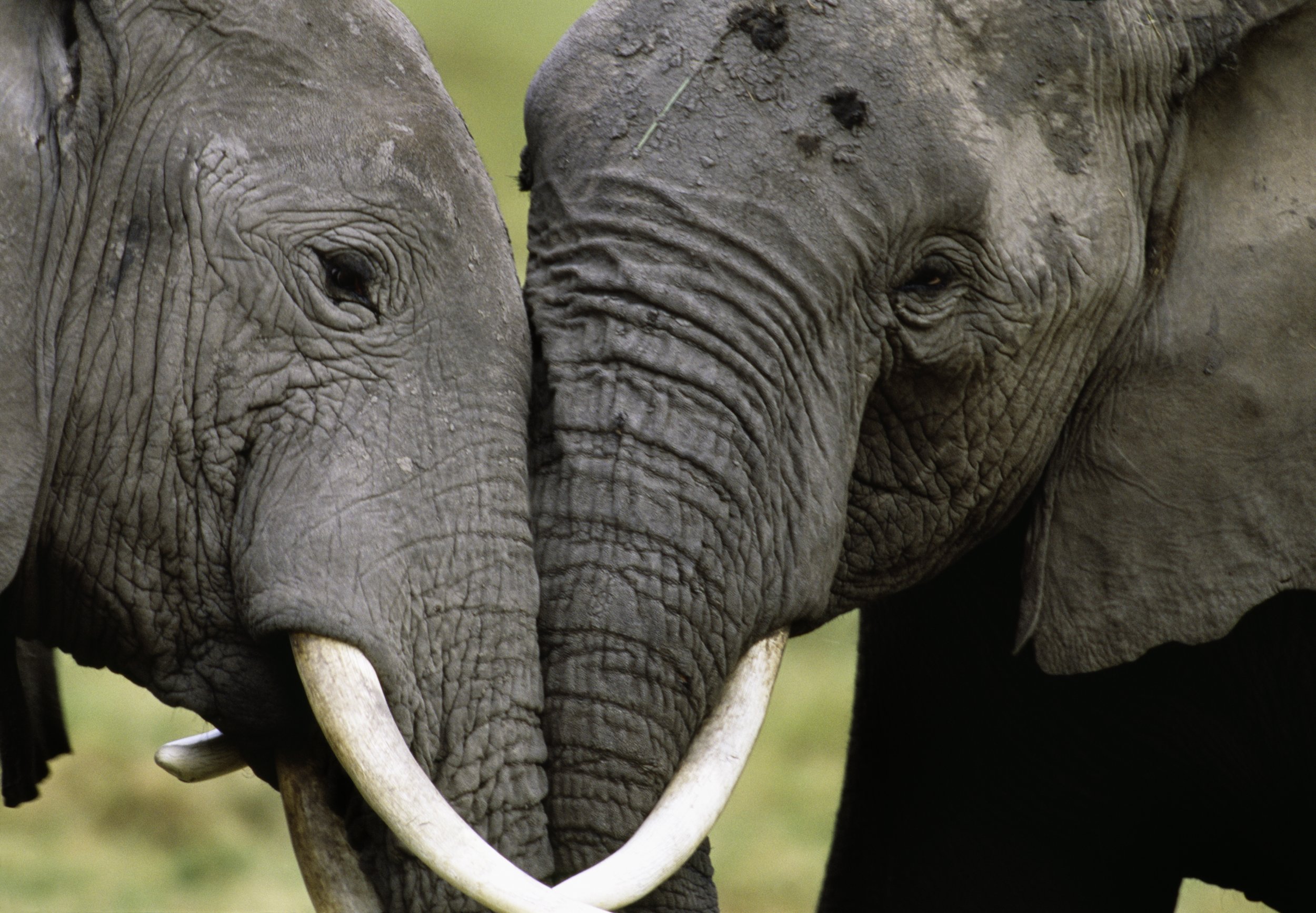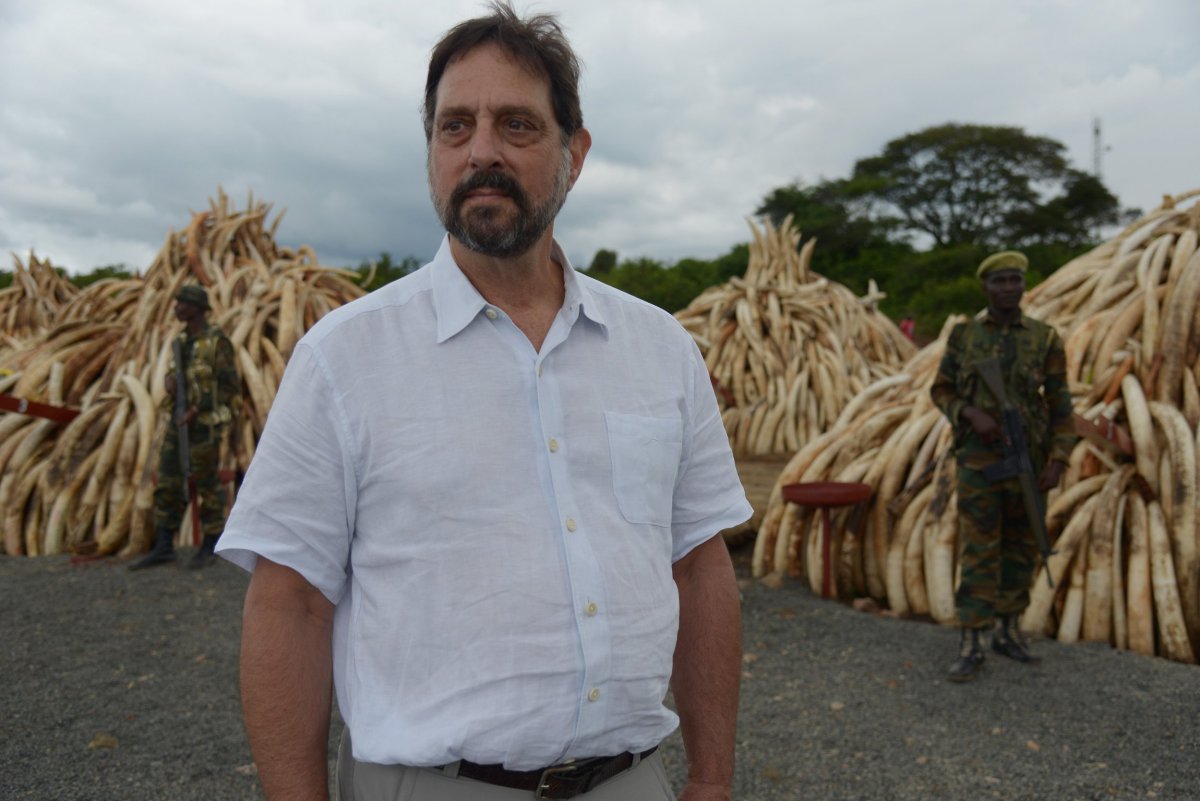
Every year, billions of dollars' worth of ivory is illegally trafficked across the globe: one thread of a web of international crime that ties together narcotics, guns and even murder. As well as tens of thousands of elephants slaughtered for their tusks, the illegal ivory trade kills scores of wildlife rangers every year.
Now, scientists have used DNA testing to expose three major cartels they believe are responsible for "the lion's share" of ivory seized globally. Their research was published Wednesday in the journal Scientific Advances.
University of Washington researcher Samuel Wasser has been investigating the illegal wildlife trade for years, probing everything from animal dung to elephant tusks. Some of his earlier work on tusks, published in Science back in 2015, identified two animal poaching hotspots in Africa. Once ivory is shipped, however, it almost always gets lost in the billion or so containers of goods—legitimate and otherwise—that are transported around the world each year.
In this latest project, Wasser and team managed to link individual shipments of ivory to specific cartels. By matching pairs of tusks across different shipments, and probing their transit history and origins, the team think they've uncovered the three largest cartels shifting ivory from Africa from 2011-2014. This period, Wasser told journalists during a press conference, marked a peak in the illegal ivory trade.
The team sampled tusks and tusk pieces from 38 seizures. Genotyping revealed some 26 samples had a pair in another ivory seizure. "In every case, the two shipments with matching tusks passed through a common port and were shipped close together in time and showed high overlap in the genetically determined origins of the tusks," Wasser said.
Linking multiple seizures "provides a roadmap to follow the money," Wasser told Newsweek during the press conference.
John Brown, a special agent with the U.S. Department of Homeland Security, agreed. The research provides "a lot more in evidence to look at and data to mine," as far as transactions related to the illegal shipments are concerned, he said.
"Wildlife trafficking," he added, "remains a serious transnational crime threatening security, economic prosperity, the rule of law, long-standing conservation efforts and human health."
Beyond the slaughter of often endangered animals themselves, wildlife cartels send ripples of violence through local communities, outfitting low-level poachers with bullets and guns, Wasser explained. Last year, he added, wildlife investigator Wayne Lotter was shot dead in Tanzania. The murder, he said, has been tied to the ivory trade.
The crimes of these groups aren't limited to the supply side. Cartels create demand for their wares by exploiting the sick, for example, Wasser said. They peddle stories of medicinal uses for everything from pangolin scales to rhino horns. In one example, traffickers spread the rumor that rhino horns could cure cancer, Wasser added.
Even though they may shift hundreds of thousands of dollars of ivory, these cartels are often just small parts of larger criminal enterprises that push narcotics like heroin and cocaine around the world, Wasser said. Wildlife crime is lucrative and relatively low-risk, he added, so it's a good way for criminals to cut their teeth in the transnational trafficking business.

Back in 2016, for example, ivory kingpin Feisal Mohamed Ali was jailed for 20 years for the illegal possession of hundreds of thousands of dollars' worth of ivory. Meanwhile, Wasser explained, narcotics investigators uncovered ties between massive drug cartels and Feisal's ivory trafficking. "It became clear that he Feisal was not the top of his cartel but part of a bigger cartel that was moving heavy narcotics to the United States."
Feisal was acquitted earlier this year after a judge questioned trial irregularities and certain circumstantial evidence. Wasser and Brown hope the study's data will help put ivory dealer back in jail. "Hopefully this will build a much stronger case against him," Wasser said.
Praising the research, Faith Walker, a research professor of wildlife genetics at Northern Arizona University, told Newsweek it's "a great example of how DNA forensics can be leveraged for enormous wildlife conservation impact… The pipette becomes a force to be reckoned with." But the speed of sample processing, she added, makes it hard for researchers to paint a comprehensive picture of criminal activity fast enough for trials.
Evolutionary biologist Vincent Lynch of the the University of Chicago hopes declining costs will hope researchers produce even better animal DNA databases. "It's not all that a ridiculous thing to think we may one day have something like an elephant Ancestry.com," he told Newsweek.
When he was training as a scientist, Wasser never imagined he'd be helping to topple international cartels. Although wading through the politics of animal welfare law can be "crushing," he told Newsweek: "There is no better feeling than knowing your science is making a big difference. It creates a passion in me that is unstoppable."
Uncommon Knowledge
Newsweek is committed to challenging conventional wisdom and finding connections in the search for common ground.
Newsweek is committed to challenging conventional wisdom and finding connections in the search for common ground.
About the writer
Katherine Hignett is a reporter based in London. She currently covers current affairs, health and science. Prior to joining Newsweek ... Read more
To read how Newsweek uses AI as a newsroom tool, Click here.








